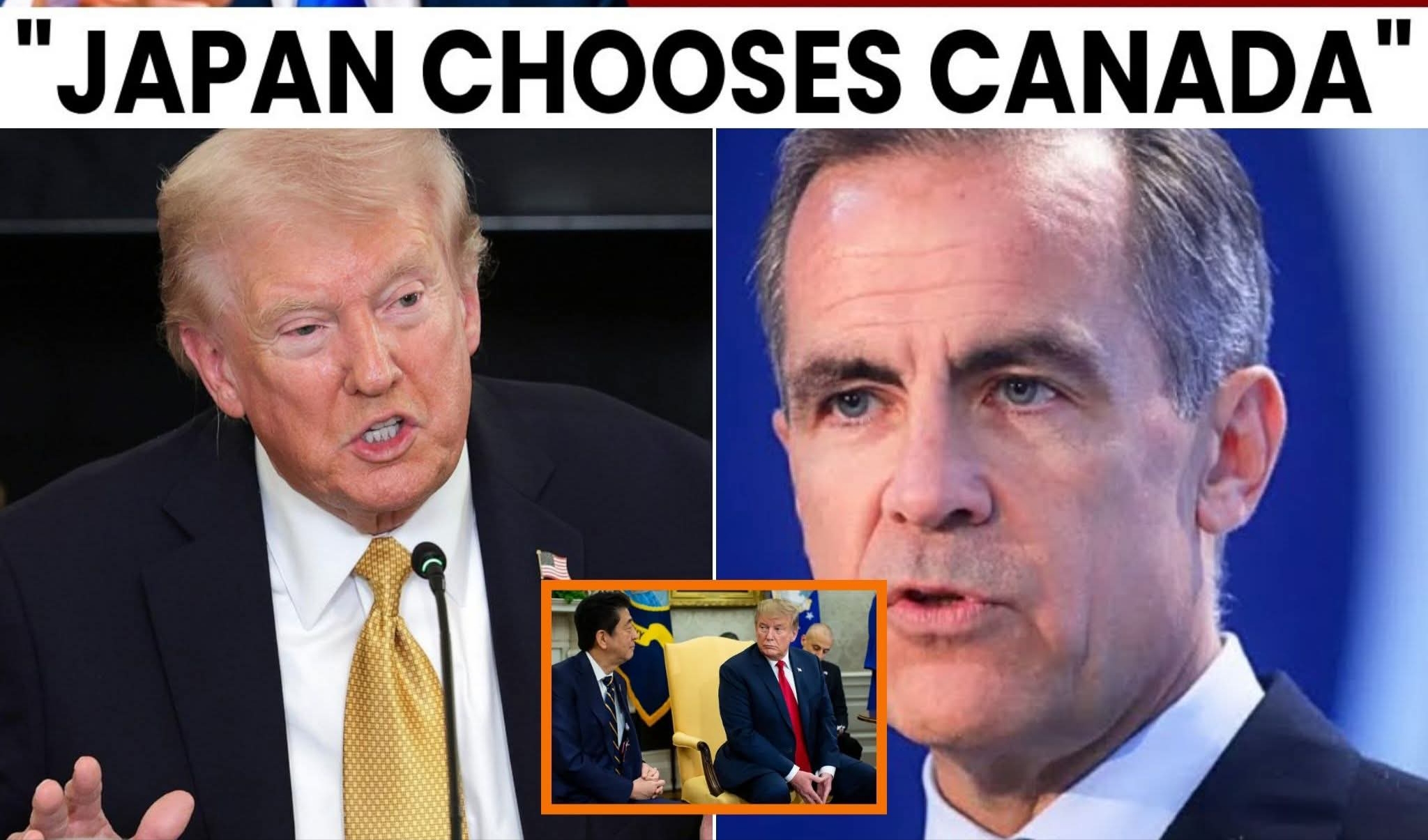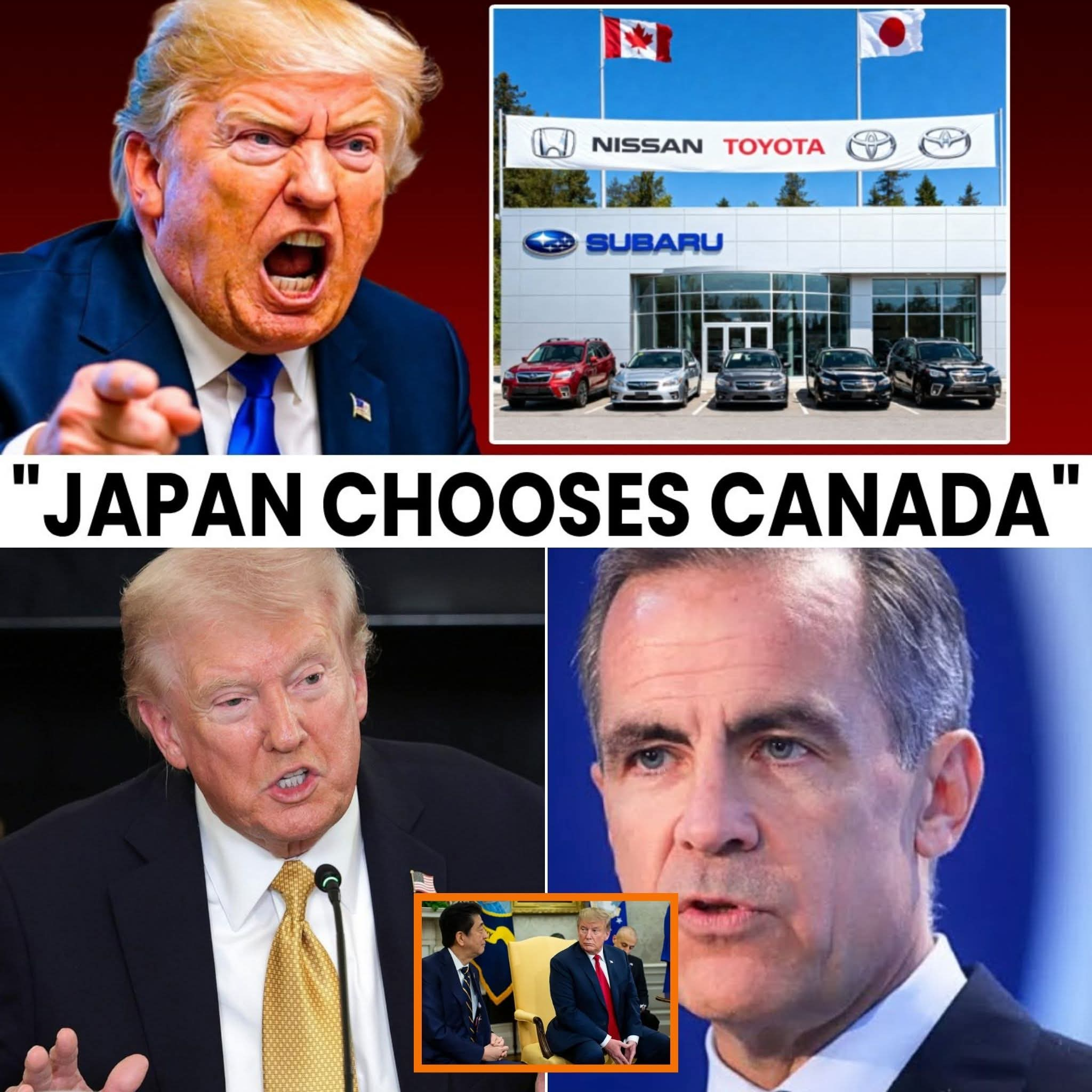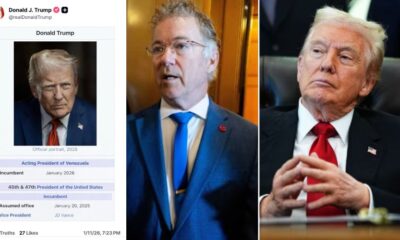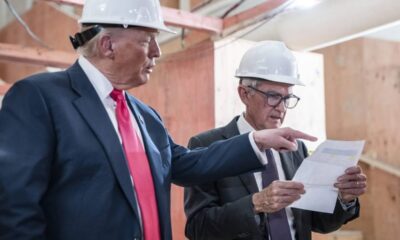NEWS
Trump FURIOUS as Japanese Automakers FLEE the U.S. — Canada Snatches Billions in a Shocking Auto Industry Shift

In a shocking turn of events, a powerful coalition of Japanese automakers has sent shockwaves through Washington, issuing a stark warning about their continued operations in the United States. Sources inside the industry describe the alert as a “clear signal of frustration,” pointing to growing tariff tensions, unpredictable regulatory shifts, and an overall climate of uncertainty that is making U.S. investments increasingly untenable. The result? Several major Japanese car manufacturers are reportedly redirecting key operations north of the border, with Canada emerging as the unexpected winner in this high-stakes geopolitical maneuver.
The announcement blindsided the White House, triggering what one senior official described as a “behind-the-scenes scramble to stop a manufacturing migration that could have long-lasting consequences for American jobs.” Economists caution that this could mark a historic shift in North America’s auto production landscape. With Canada now set to secure billions of dollars in new automotive contracts, the implications for U.S. manufacturers and workers are profound.
Former President Donald Trump wasted no time in voicing his outrage. In a series of fiery statements, he denounced the move as “completely unacceptable” and accused foreign automakers of “taking advantage of America’s weakness.” Sources familiar with the matter say that Trump sees this as more than just an economic threat; he frames it as a national humiliation, an affront to U.S. industrial power and global influence.
Meanwhile, Canadian officials are celebrating quietly but jubilantly. Analysts describe the developments as a “historic turning point,” noting that Canada’s automotive sector is poised to absorb a wave of investment that could significantly boost production, employment, and trade revenues. Industry experts point out that Canada’s stable regulatory environment, favorable trade agreements, and skilled labor force make it an attractive alternative to the increasingly unpredictable U.S. market.
The Japanese automakers’ warnings are detailed and pointed. They cite escalating tariffs, shifting environmental regulations, and uncertainty over government incentives as major factors influencing their decisions. While the companies have not provided a full roadmap of their relocation plans, insiders suggest that several high-profile plants could begin transitioning operations to Canada within the next year. If realized, these moves would not only shift manufacturing capacity but also reshape supply chains, from parts suppliers to logistics networks, giving Canada an unprecedented competitive edge in North America’s automotive market.
For the United States, the implications are alarming. Trade experts warn that the exodus could trigger a cascade effect, encouraging other international manufacturers to reconsider their U.S. operations. The potential loss of high-paying jobs, technological expertise, and tax revenues could deepen economic anxiety in regions long reliant on auto production. Meanwhile, Washington is reportedly weighing emergency measures to retain these investments, though the window to act may be closing faster than officials anticipated.
For Canada, the situation is a boon. Officials are reportedly preparing incentives and infrastructure upgrades to welcome the incoming investments, confident that this sudden influx could cement the country’s reputation as North America’s go-to hub for automotive manufacturing. Industry analysts predict that Canada could see billions of dollars in new contracts over the next decade, positioning the country as a formidable competitor to the United States in the global auto sector.
The controversy raises pressing questions: How will the U.S. respond to this industry migration? Can trade policies or incentives realistically bring manufacturers back, or is the shift irreversible? And what does this mean for the future of American jobs in automotive manufacturing? For now, all eyes remain on Washington and Ottawa, as the race to secure the future of North American auto production accelerates with unprecedented speed.
What did the Japanese automakers actually say — and why is Canada suddenly positioned to gain the upper hand? Their warnings highlight a mix of economic pragmatism and frustration over unpredictable policies, making Canada’s stability and favorable trade environment a decisive advantage. The coming months could very well define the next chapter in North America’s industrial history, and the stakes could not be higher.



















